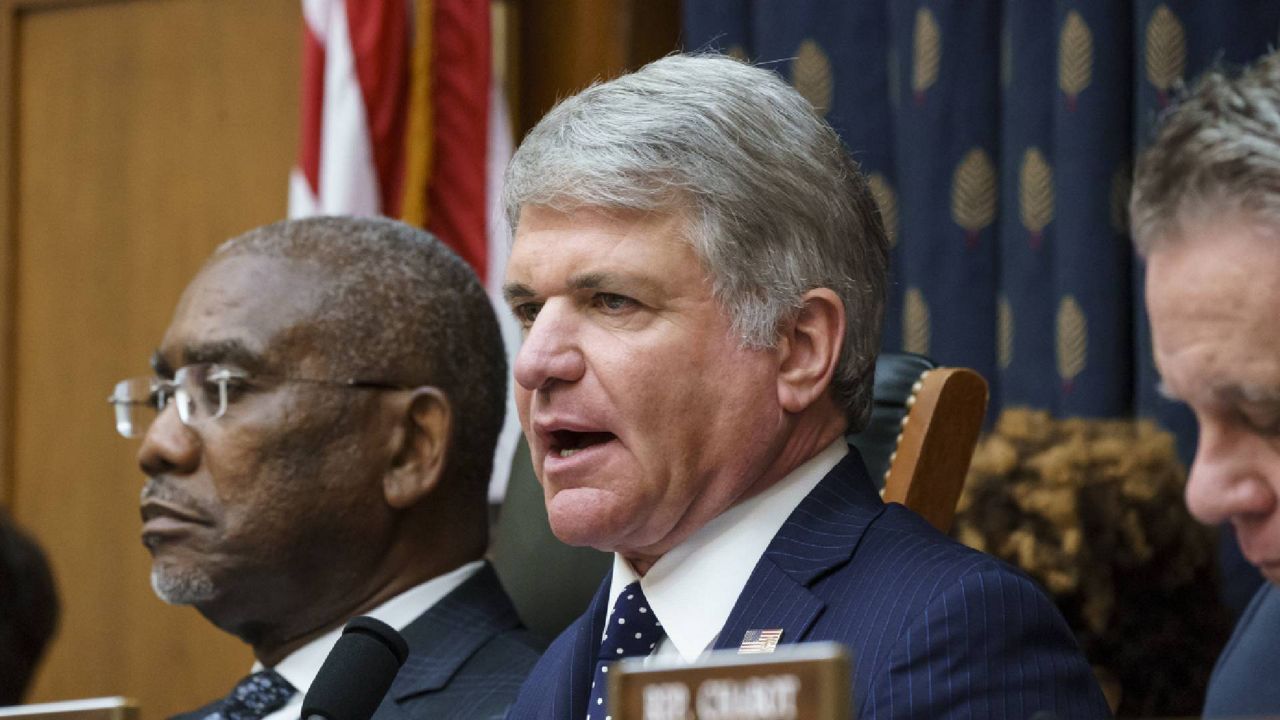Secretary of State Antony Blinken on Monday became the first top official to face tough congressional questioning over the Biden administration’s handling of the military withdrawal from Afghanistan.
Appearing virtually before the House Foreign Affairs Committee, the secretary highlighted the "heroic effort" of State Department employees in the final days of the U.S. exit and defended the administration's decision to leave, mostly placing blame on the deal that the Trump administration negotiated with the Taliban.
"We inherited a deadline. We did not inherit a plan," Sec. Blinken said, later adding: "The Taliban made abundantly clear ... that it was going to hold us to the deadline."
"[The Taliban] made very clear that if we move past that deadline, it would resume the attacks that it had stopped, on our forces and on our allies and partners," he said.
Blinken called the decision to withdrawal the "right decision" and did not take direct responsibility for the execution of the United States' tumultuous exit. He also called the Taliban the "de facto" government of Afghanistan.
"We did the right thing by our citizens in working feverishly to get every one of them out. We did the right thing by 125,000 Afghans to bring them to safety, and now we're working to do the right thing to hold the Taliban to the expectations of the international community," he said, though he also admitted the Taliban's government "falls very short of the mark that was set by the international community for inclusivity."
The secretary of state on Monday also defended the intelligence community's predictions about Afghanistan.
"Nothing I or anyone else saw indicated a collapse of this army and this government in 11 days," he said.
House lawmakers for their part criticized the administration's lack of planning for what some called the "worst case scenario."
"This was an unmitigated disaster of epic proportions," said Rep. Michael McCaul of Texas, the ranking member on the foreign affairs committee. "I never thought in my lifetime that I would see an unconditional surrender to the Taliban."
Rep. Adam Kinzinger, R-Ill., who served in both Afghanistan and Iraq, said both the Trump and Biden administrations were to blame, but he also emphasized that the State Department should have been more prepared.
"We support the members of the State Department and their heroic action in the evacuation," he said. "I think the broader point is they never should have been put in a place where they had to act heroically."
As of Monday, Blinken said, there were about 100 Americans still in the country, "several thousand" green card holders and an undetermined number of Afghan allies who worked for the United States during the war. Last week, 60 U.S. citizens were offered seats on flights leaving the country, and 30 accepted, the secretary said, and flights have not left regularly.
When asked, he did not commit to evacuating all of the thousands of Afghan partners still in the country, instead once more highlighting the historic airlift in August that resulted in the evacuation of more than 100,000 Afghans, many of them "at risk in one way or another."
In separate House and Senate hearings, lawmakers are grilling Blinken on the Biden administration’s response to the rapid collapse of the Afghan government and more specifically on the State Department’s response to what many claim was a predictable result in the final days of the American military presence there.
Blinken, who had publicly predicted in June that a complete Taliban takeover would not happen “from a Friday to a Monday,” is appearing before the house committee on Monday and the Senate Foreign Relations Committee on Tuesday.
The State Department has come under heavy criticism from both Republicans and Democrats for not doing enough and not acting quickly enough to get American citizens, legal residents and at-risk Afghans out of the country after the Taliban took control of Kabul on Aug. 15.
Republicans, in particular, have been demanding answers as to why American citizens were left behind in the chaotic days and weeks before the military completed its withdrawal on Aug. 30. The State Department and the administration more broadly have defended their efforts, pointing to an unprecedented airlift of more than 100,000 people from Kabul in two weeks amid rampant confusion, extreme security risks and severe logistical challenges.
In a likely preview of GOP questions, the Republican National Committee released a statement early Monday with the banner headline “Fire Blinken,” demanding that he be held to account for what it described as a litany of failings.
“Blinken’s disastrous handling of Afghanistan and weak leadership put American lives in danger, including the lives of Americans still trapped in Afghanistan,” it said.
Blinken is very close to President Joe Biden and his job as America’s top diplomat is almost certainly safe, but criticism of the administration’s handling of the Afghanistan withdrawal has not been limited to Republicans.
Numerous Democrats have also questioned the policy and expressed concern about stranded Americans, green card holders and Afghans who could face retaliation from the Taliban because of their work or ties to the U.S. government over the past 20 years.
State Department officials have acknowledged that the congressional hearings could be contentious and possibly ugly, but many remain convinced they did the best they could under extremely trying circumstances, including the evacuation of the U.S. Embassy in Kabul and the crush of desperate people at Kabul’s airport seeking to leave.



